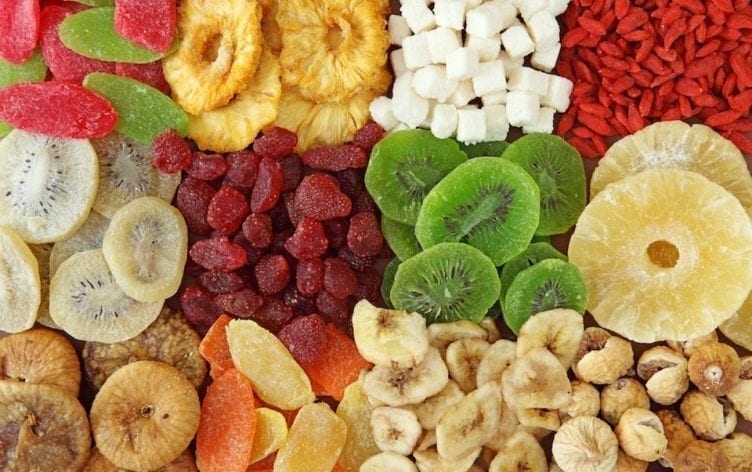
Dried fruits can make a convenient snack or a quick way to add sweetness to a salad. But if you’ve ever wondered if dried fruits have the same nutritional benefits as fresh, the truth is: not quite.
Studies suggest dried fruits may be a good source of important nutrients, such as fiber, vitamins A, C, and K, magnesium, potassium, and calcium, and they may improve diet quality. But before you fill your grocery cart with dehydrated dates, here are some things to keep in mind:
1. You may be eating more than you think. Because the water has been removed, dried fruits carry less volume than fresh. While you probably wouldn’t eat 10 to 12 fresh apricots in one sitting, it’s actually quite easy to do with a bag of the dried stuff. Even though a dried apricot is a fraction of the size of a fresh one, the two contain the same number of calories and sugar—unless the dried apricot has been sweetened with added sugars, in which case it contains more sugar. Bringing me to point #2.
2. Dried fruits can be full of added sugars. Dried fruit isn’t candy, so be wary if it tastes like it is. To make them more palatable, fruits may be sweetened with sugar—cranberries and pineapple are two of the biggest offenders. To cut out added sugars, dried fruits should contain only one ingredient: FRUIT!
3. Not all processing practices are the same. Many dried fruits contain the preservative sulfur dioxide to increase shelf life. Sulfur dioxide is a problematic preservative in those with sensitivities and has been linked to stomach upset, allergic reactions, even asthma attacks. Depending on where you live, some foods may contain more than others as sulfite standards vary by country. According to the Food Intolerance Network, sulfites in foods in Australia can reach levels of 3,000 parts per million (ppm) and 2,000 ppm in Britain. In the US, there is no upper limit but foods containing more than 10 ppm must disclose this on the label. If your dried fruit has a glossy look to it, chances are it’s been coated with a bit of oil. Though it may reduce clumping during processing, the oil increases the likelihood of spoiling from oxidation.
The Takeaways
Though they can be a good source of vitamins, minerals and fiber, large portion sizes, added sugars, and problematic preservatives & processing practices can quickly offset any nutritional benefits dried fruits provide.
Check the ingredient list to avoid dried fruits with added sugar, oils and sulfur, particularly if you have a known sulfur sensitivity. The simpler the ingredient list, the better they are for you—and when in doubt, fresh is always best.



